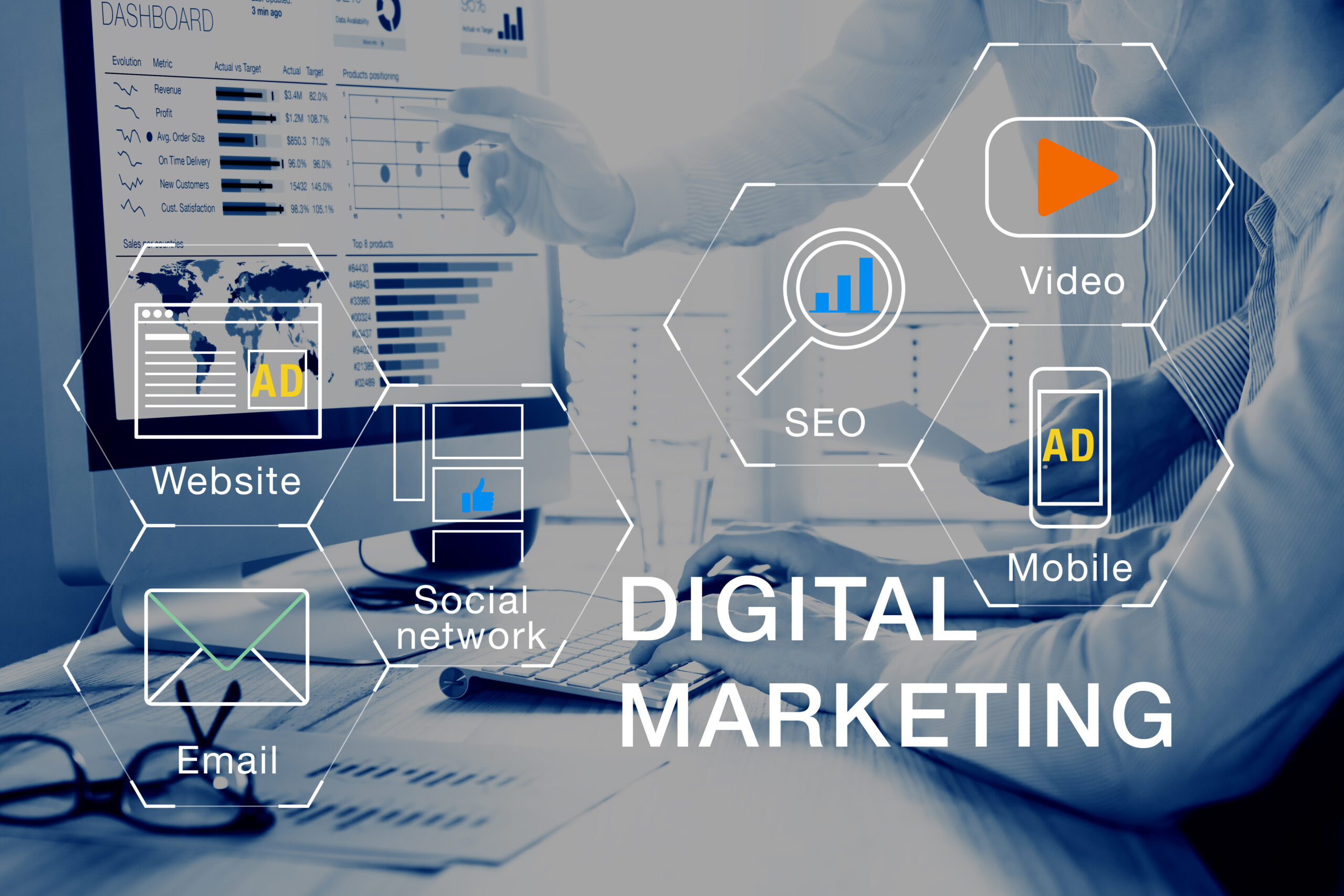
In the ever-evolving landscape of e-commerce, digital marketing has emerged as a cornerstone for success. As 2023 unfolds, the strategies and approaches that drive e-commerce businesses forward continue to adapt to the dynamic online environment. From social media innovations to personalized customer experiences, this updated guide delves into the latest trends and strategies in digital marketing for e-commerce.
-
Omnichannel Experience: Bridging the Gap Between Online and Offline
In 2023, e-commerce isn’t just about having a strong online presence. It’s about seamlessly integrating your digital platforms with offline touchpoints to provide customers with a holistic brand experience. Incorporating technologies like QR codes, augmented reality (AR), and near-field communication (NFC) into your marketing campaigns can create interactive experiences that bridge the gap between online and offline worlds. For instance, customers can scan a QR code on a physical store display to instantly access product details and reviews.
-
Social Commerce Evolution: Shoppable Content and Live Shopping
Social media continues to be a driving force in digital marketing for e-commerce. However, the focus is shifting towards social commerce, where brands leverage platforms as virtual marketplaces. Shoppable posts, stories, and videos enable customers to make purchases directly from their social feeds. Live shopping takes this a step further, allowing brands to host real-time shopping experiences, showcasing products and answering questions as viewers buy in the moment.
-
AI-Powered Personalization: Enhancing Customer Engagement
Artificial intelligence (AI) is revolutionizing the way e-commerce businesses tailor their marketing efforts. AI-driven algorithms analyze customer behaviors, preferences, and purchase histories to deliver highly personalized recommendations. Whether it’s suggesting products, sending personalized emails, or providing real-time chat support, AI enhances customer engagement and increases the likelihood of conversion.
Read more, Unlocking Business Growth: The Power of SEO Strategies
-
Voice Search Optimization: Capturing Conversational Queries
Voice search is gaining momentum as smart speakers and virtual assistants become ubiquitous in households. E-commerce brands are optimizing their content for voice search by focusing on natural language queries. Long-tail keywords and conversational phrases are key components of this strategy, ensuring that your products are discoverable when customers make voice searches for specific items.
-
Sustainability and Ethical Marketing: Aligning with Values
Consumers are becoming increasingly conscious of the environmental and ethical impacts of their purchases. E-commerce businesses are responding by highlighting their sustainability initiatives and ethical practices in their marketing campaigns. Transparent storytelling, showcasing responsible sourcing, and demonstrating social responsibility not only resonate with conscious consumers but also contribute to building brand loyalty.
-
Influencer Collaborations and User-Generated Content
Influencer marketing remains a powerful tool in the e-commerce arsenal. However, the focus is shifting towards authenticity and micro-influencers who have a more engaged and niche audience. Collaborations with influencers who genuinely align with your brand values can yield more meaningful results. Additionally, user-generated content, including reviews, testimonials, and customer photos, provides social proof and builds trust among potential buyers.
-
Data Privacy and Customer Trust
As data breaches and privacy concerns continue to make headlines, prioritizing data security and privacy is paramount. E-commerce businesses need to clearly communicate their data practices and reassure customers that their information is protected. Implementing robust security measures and complying with regulations like GDPR and CCPA are crucial steps in fostering customer trust.
Conclusion
In conclusion, digital marketing in the realm of e-commerce is a dynamic and multifaceted endeavor. Staying up-to-date with the latest trends and strategies is essential for businesses to thrive in the competitive digital marketing online marketplace. From omnichannel experiences to AI-driven personalization, each strategy contributes to creating a seamless, engaging, and customer-centric e-commerce journey. As 2023 unfolds, e-commerce businesses that embrace these strategies will be better positioned to drive growth and connect with their target audiences in meaningful ways.